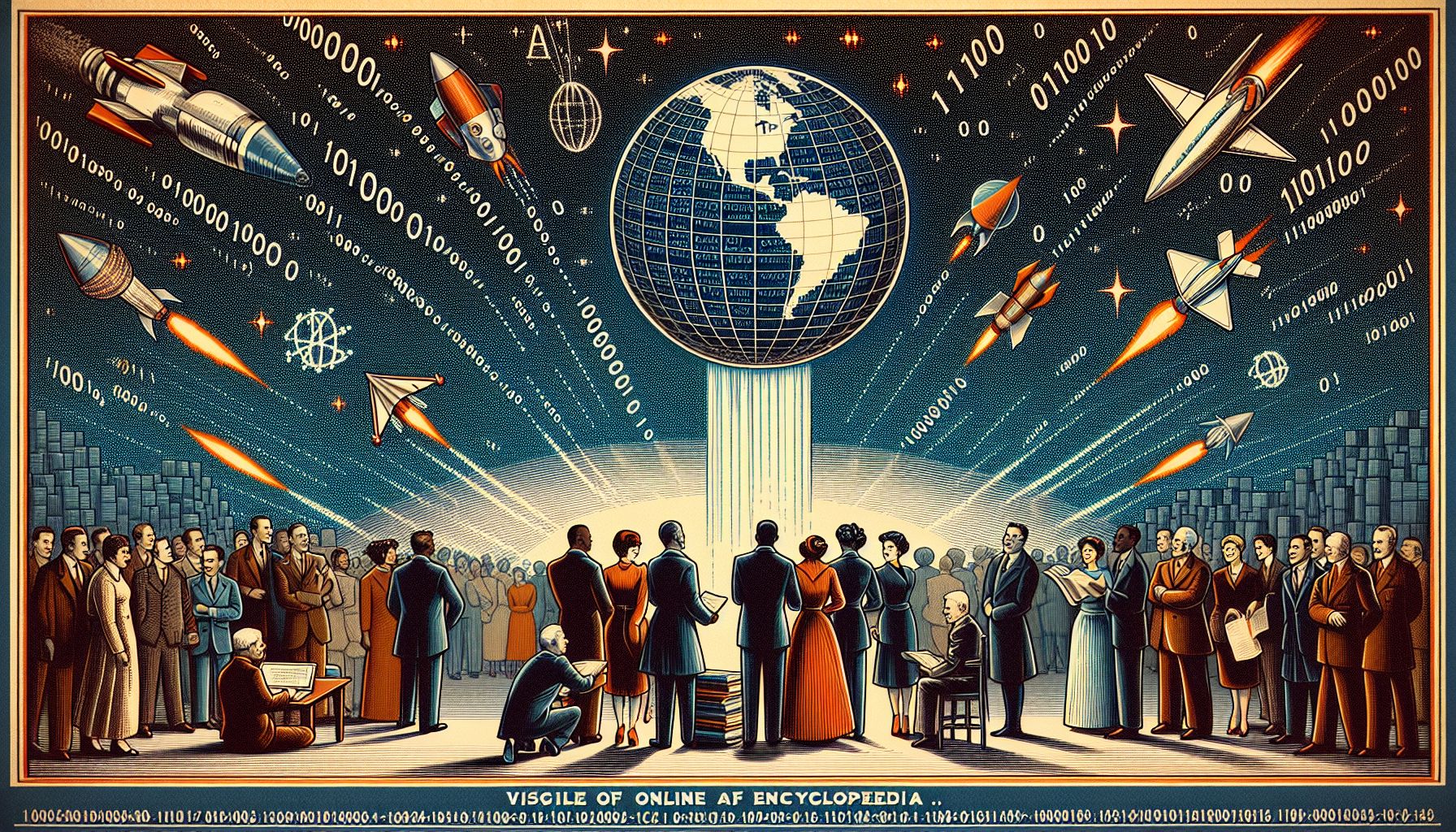📌 Let’s explore the topic in depth and see what insights we can uncover.
⚡ “Imagine a world without Wikipedia—sounds impossible, right? But in 2001, this game-changing resource was just a tiny seed, whose growth forever revolutionized how we access and share knowledge.”
In an era where information is paramount, Wikipedia has become our go-to source for quick, comprehensive knowledge. Its inception in 2001 marked the initiation of an information revolution, fundamentally changing the way we perceive, access, and share knowledge. The launch of Wikipedia and the rise of collaborative knowledge is a fascinating journey that underscores the power of community-led initiatives in shaping the digital landscape. This blog post aims to delve into the origins of Wikipedia, exploring its innovative approach to information sharing and the subsequent rise of collaborative knowledge.
🚀 The Launch of Wikipedia

Wikipedia: Igniting the Flame of Collaborative Knowledge, 2001
Wikipedia was launched on 15th January 2001 by Jimmy Wales and Larry Sanger. The underlying idea was to create a free encyclopedia for every single person on the planet. But the real revolution was the format: instead of being penned by a team of experts, Wikipedia was designed to be a collaborative effort, written and edited by anyone who wanted to participate. This was a radical departure from traditional information sources. Until then, encyclopedias were curated by a select group of scholars who were deemed to be authorities in their field. Wikipedia, however, invited everyone to the table, making it an open platform for knowledge sharing. The premise was simple: the more people contribute, the more comprehensive and accurate the information becomes.
🤝 The Power of Collaboration
Wikipedia’s revolutionary approach to content creation is built on the concept of wikis. A wiki is a type of website that allows users to add, modify, or delete its content via a web browser using a simplified markup language or a rich-text editor. This format makes it easy for people with no specialized technical knowledge to contribute valuable information. The power of such a collaborative approach is immense. Wikipedia leverages the collective intelligence of millions of contributors who bring their unique insights and experiences to the table. Over time, this collaborative effort has resulted in a vast repository of knowledge that spans countless topics. Consider this: if you were to spend just five minutes reading each Wikipedia article, it would take you over 16 years to finish them all!
📈 Rise of Collaborative Knowledge
The launch of Wikipedia signalled a paradigm shift in the way knowledge is created and disseminated. This new model of knowledge creation, often referred to as ‘collaborative knowledge’, is a testament to the power of collective intelligence. Collaborative knowledge is not just about the accumulation of facts. It’s about the process of creation, refinement, and validation. Every edit, every contribution, and every debate that takes place on 🧠 Think of Wikipedia as a testament to this process. It’s like a giant jigsaw puzzle where everyone is invited to contribute a piece. The result is a rich, dynamic, and ever-evolving portrait of our collective understanding.
🚧 Challenges and Criticisms
Despite its undeniable success, Wikipedia’s model of collaborative knowledge has faced significant criticism. The primary concern is the reliability of information. Since anyone can contribute, it opens the door for misinformation and bias. However, the Wikipedia community has developed various measures to mitigate these issues. A dedicated team of volunteer editors regularly patrol the site, checking for inaccuracies, bias, and vandalism. In addition, the site has stringent guidelines for citing sources, ensuring that information is backed by reliable references. While it’s true that Wikipedia is not infallible, it’s noteworthy that several studies have found its accuracy comparable to traditional encyclopedias. One such study, published in Nature in 2005, compared a set of science articles from Wikipedia and Encyclopædia Britannica and found no significant difference in the number of errors.
🧭 Conclusion
Wikipedia’s journey from its launch in 2001 to becoming one of the most visited websites globally is a testament to the power of collaborative knowledge. It has democratized information, making it accessible to anyone with an internet connection. It has harnessed the collective intelligence of millions, creating a vast, ever-growing repository of human knowledge. The challenges faced by Wikipedia also highlight the need for vigilance in this age of information. Misinformation and bias are real threats that need to be constantly addressed. But the solution lies not in abandoning this model of collaborative knowledge, but in refining and improving it. After all, the pursuit of knowledge is an ongoing journey, filled with discoveries, debates, and course corrections. In the grand scheme of things, Wikipedia is still a young experiment in the long history of knowledge sharing. But its impact has been profound. It has shown us that when we work together, we can create something far greater than the sum of our parts. As we move forward, the ethos of Wikipedia – that knowledge should be free and accessible to all – will continue to guide us in our quest for understanding.
🤖 Stay tuned as we decode the future of innovation!
